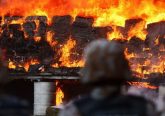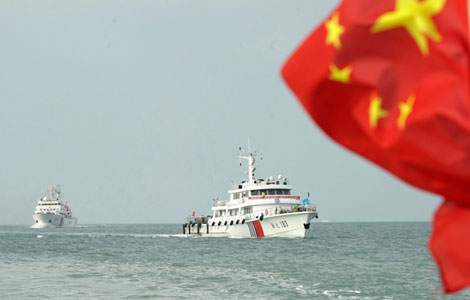The future of democracy and the rule of law in Southeast Asia is in peril. While fundamentally different in many ways, current political developments in the Philippines and Indonesia showcase an erosion of fundamental rights, respect of differences and due process. Confronted by terrorism, drugs and illiberal groups, how willing and able are the governments of the Philippines and Indonesia to balance national security prerogatives and popular demands with respect for civil liberties?
A Spiral of Murder in the Philippines
Under the leadership of President Rodrigo Duterte, the Filipino government embraced “martial law” to wage war on drugs, and now against militants aligned with the Islamic State. The government’s actions have reportedly led to widespread human rights violations and extra-judicial killings. The big question is what will happen if Duterte should extend martial law nationwide, as he recently hinted at intending to do. Such an action raises fears about growing abuse of power, political suppression and human rights violation. Although Duterte is a democratically elected president, who can be seen as justified in confronting drug-trafficking and terrorism, the way in which these challenges have been addressed requires attention.
Duterte — who was elected in 2016 — has presented himself as the only political figure able to wage war against drugs. He has a substantial track-record of repressive counter-narcotic measures. As mayor of the city of Davao on the Southern island of Mindanao, he was accused of establishing vigilante groups and death squads to stop the sale and consumption of drugs. As president, Duterte proclaimed “martial law” and vowed to kill as many as 100,000 alleged drug traffickers and criminals. While drug-trafficking is a serious problem in the Philippines, many of those targeted are reportedly non-violent users and small-scale dealers.
Thus, respect for human rights is in jeopardy under a President who has embraced “iron fist” measures in response to drug trafficking, dealing and consumption. Duterte’s frontal assault on drugs has resulted in widespread human rights abuses, extra-judicial killings and arrests. According to a report by the Human Rights Watch (HRW), around 7,000 people were killed by regular and irregular forces linked to the government. Media reports provide further gruesome details about thousands killed by the police and vigilante groups. Despite such violence, Duterte’s popularity remains high.
Nevertheless, the President is also facing criticism at home and abroad. Phelim Kine of Human Rights Watch called on the government to respect guarantees of basic rights under international law. Taking a stance against Duterte, the Philippine’s Catholic Bishop Conference has labelled Duterte’s war against drugs and criminals in the country as a “reign of terror.” The message was read out in Sunday mass all over the country, and churches actively saved and hid those targeted. Jude Sabio, a Filipino lawyer, has presented a complaint to the International Criminal Court (ICC) stating that the president has “repeatedly, unchangingly and continuously” committed extra-judicial executions or mass murders over three decades, amounting to crimes against humanity.”
Despite these criticisms, Duterte’s regime, confronted by another challenging issue, has extended another form of “martial law” by declaring war against the Islamist armed group Maute, aligned with the Islamic State, in the city of Marawi. Reports state that the armed group beheaded policemen and civilians, raised its flag above the city and burned down buildings. Linking the fight against both Maute and Abu Sayaff in terms of the global “war on terror” against ISIS and al-Qaeda, government forces raided the safe house of Isnilon Hapilon, a leader of the extremist group Abu Sayyaf believed to be a key figure for the Islamic State in the Southeast Asia region. Reportedly, Duterte considered applying “martial law” and deploying the army throughout the whole country.
Extending the application of martial law in the fight against terrorism, might be the beginning of another escalating “spiral of murder.” Domestic and international observers have been critical of the government’s reliance on military tactics and martial law. Although democratically legitimated, Duterte has shown little appetite for due process, basic rights or restraint in waging his war against criminals and terrorists. While martial law can be justifiable in certain contexts, the way it has been deployed as cover for extrajudicial killings, mistreatment of alleged suspects, and created an atmosphere of fear highlights the illiberal tendencies of Duterte’s presidency, and, is reason for concern.
Mob Rule in Indonesia
While the situation in Indonesia looks different from that of the Philippines, it follows a similar trajectory of increasing violence and discrimination against specific social groups. Indonesia represents a case of sectarian discrimination, in which radical groups associated with the Muslim majority are attempting to assert their influence and establish dominance over the Christian minority. Recently, the country has witnessed the emergence of “mob rule”, which is the presence of radical groups that aim to control public life through intimidation and violent actions.
One clear example of the growing strength of mob rule was the ouster of Basuki Tjahaja Purnama (Ahok), the former governor of Jakarta. In a country where the Malayu Muslims are the majority and dominant group, the governor, who is ethnically Chinese and Christian, was an outsider. Between October and December of 2016, Ahok faced severe protests from several radical Islamic groups and their supporters. This protest was sparked by Ahok’s speech to a group of fishermen in September 2016 in which he supposedly violated blasphemy laws. Ahok reportedly said in his speech: “… if you can’t choose me because you are afraid you will go to hell, that’s OK.” According to Ahok, he did not intend to degrade or insult Islam, but only shed light on other politicians’ use of “holy verses” to oppose non-Muslim candidates like him. Despite this defence, Islamic groups still demanded the arrest of Ahok by taking to the streets. Massive protests against Ahok were held again during his trial. In part responding to popular pressure, a court convicted Ahok under the country’s blasphemy laws and sent him to prison for two years.
The episode is just one example of Indonesia moving closer to a dangerous line where public pressure and intolerance influence policy making and interpretation of law. The Ahok case further demonstrates how mob rule works: police officers and witnesses were intimidated and prompted to act in ways that satisfied the mob rather than served justice. For example, Ahok’s defense team presented evidence that Willyudin Abdul Rasyid, a secretary of Bogor Islamic Forum, forced the Bogor Police Officers to file his report on Ahok’s alleged blasphemy law or he would have called on thousands of Muslims to raid the police station. Secondly, Ahok’s case has implications for the future of freedom of speech and the role of religion in public life and politics. Lastly, the episode raises questions about the protection of minority rights against the will of the majority, a tenet of liberal democracy. As long as neither the Indonesian government nor the courts take a stance opposing and condemning ‘mob rule’, the fate of religious minorities’ basic rights will be at stake.
Outlook for Southeast Asia
The events transpiring in the Philippines and Indonesia, while different in many regards, highlight a similar challenge for prospects for liberal democracy in Southeast Asia. Respect for the rights of minorities, and even alleged criminals and “enemies of the state” — a hallmark of the liberal democratic rule of law — is eroding in both countries. The Philippines, confronting drugs and terror, are governed by a President who has opted for repressive measures that have shown little restraint or consideration for human rights. Indonesia, the country with the largest Muslim population in the world, is struggling to find a way to manage inter-group differences and guarantee the rights of its Christian minority. Defending democracy and the rule of law, under threat from both state and non-state actors, requires a renewed and steadfast commitment. Only then might the Philippines and Indonesia turn back from the dark times ahead.






